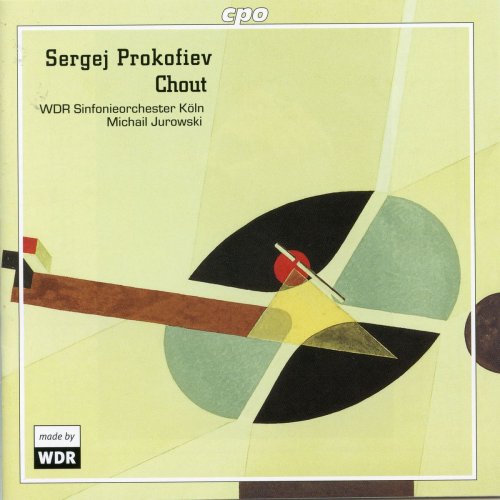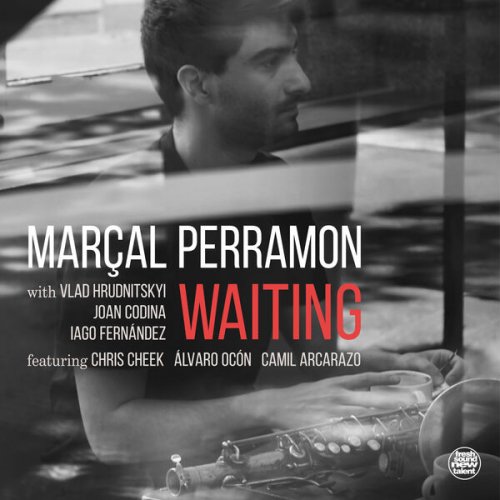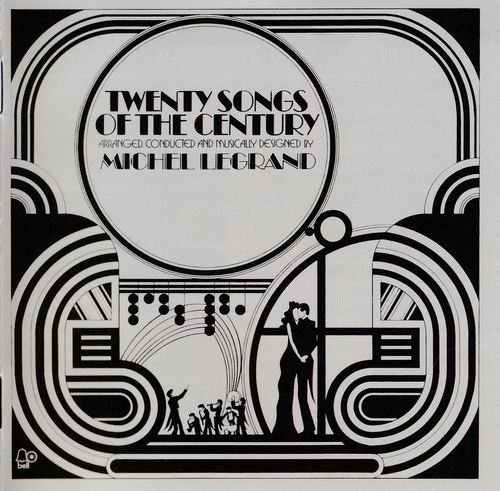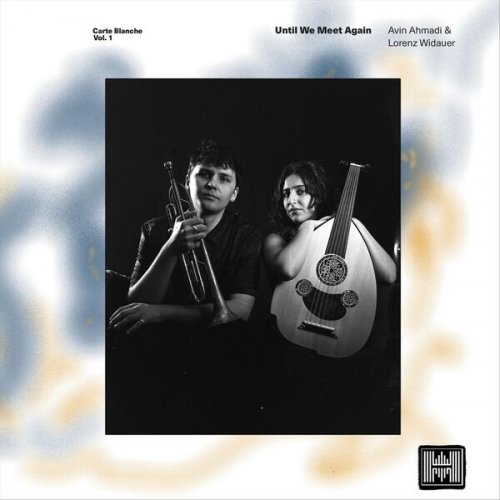WDR Sinfonieorchester Köln - Prokofiev: Chout, Op. 21 (2004)

Artist: WDR Sinfonieorchester Köln
Title: Prokofiev: Chout, Op. 21
Year Of Release: 2004
Label: CPO
Genre: Classical
Quality: FLAC (tracks)
Total Time: 56:56 min
Total Size: 239 MB
WebSite: Album Preview
Tracklist:Title: Prokofiev: Chout, Op. 21
Year Of Release: 2004
Label: CPO
Genre: Classical
Quality: FLAC (tracks)
Total Time: 56:56 min
Total Size: 239 MB
WebSite: Album Preview
I. Tableau • La Bouffon Et Sa Bouffonne
1. Beginning 7:11
2. Premier Pas Indécis 3:13
3. Entr’acte I 2:31
II. Tableau • Chez Les 7 Bouffons
4. Beginning 1:54
5. Danse Des Bouffonnes 1:52
6. Les Bouffonnes Decident De Tuer Leurs Femmes 1:31
7. Coups De Fouet Désordonnés 0:53
8. Cortège Funèbre — Entr’acte II 3:29
III. Tableau • Dans Le Cour Du Boufon
9. Complete Tableau — Entr’acte III 7:33
IV. Tableau • La Chambre De Réception Des Bouffons
10. Beginning 1:40
11. Dans Des Filles 5:16
12. Sortie Marchand 1:20
13. Entr’acte IV 7:21
V. Tableau • La Chambre À Coucher Du Marchand
14. Le Marchand Tire Le Drap 2:34
15. Entr’acte V 3:31
VI. Tableau • Le Jardin Du Marchand
16. Le Bouffon Réclame Sa Soeur 1:17
17. Le Marchand S’éloigne 3:43
This is an excellent version of the complete score to Prokofiev's still somewhat neglected early ballet Chout. Michail Jurowski and the WDR Sinfonie Orchester Köln present the score in stunning sound, all sorts of detail emerging with excellent orchestral balances, the whole yielding a generally gracious and somewhat Romantic account of this colorful work. The individual orchestra members play their solos especially well and not always in a conventional manner: in the opening cue, the clarinetist mesmerizes the ear with his beguiling upward slides, making the music tarter and a bit sassy. The brass play with spirit, too: in the closing number, "Le marchand s'eloigne," the tuba growls and howls as the strings and other brass turn frenzied, the whole sounding deliciously wanton and thoroughly exciting.
The suite to this work has received a number of fine recordings over the years, but previously only Rozhdestvensky had recorded the full version, that effort issued on Melodiya in the mid-'80s. This Jurowski version compares well to that effort, offering a quite valid alternative view to the more aggressive and grittier Rozhdestvensky: instead of acid and slapstick, Jurowski gives the listener honey and playful finesse; when the music arrives or ends with a crash in Rozhdestvensky, it is more likely to have a good-natured bounce in Jurowski. Not that Jurowski turns in a G-rated performance of this farcical ballet about seven buffoons who are tricked into slaying their wives: he, too, captures Prokofiev's sardonic sense and enfant terrible persona, traits nearly always present in his early works. The CPO sound reproduction is vastly more detailed than the older Melodiya recording, too.
The suite to this work has received a number of fine recordings over the years, but previously only Rozhdestvensky had recorded the full version, that effort issued on Melodiya in the mid-'80s. This Jurowski version compares well to that effort, offering a quite valid alternative view to the more aggressive and grittier Rozhdestvensky: instead of acid and slapstick, Jurowski gives the listener honey and playful finesse; when the music arrives or ends with a crash in Rozhdestvensky, it is more likely to have a good-natured bounce in Jurowski. Not that Jurowski turns in a G-rated performance of this farcical ballet about seven buffoons who are tricked into slaying their wives: he, too, captures Prokofiev's sardonic sense and enfant terrible persona, traits nearly always present in his early works. The CPO sound reproduction is vastly more detailed than the older Melodiya recording, too.



![NYO Jazz - Live in Johannesburg (Live) (2025) [Hi-Res] NYO Jazz - Live in Johannesburg (Live) (2025) [Hi-Res]](https://www.dibpic.com/uploads/posts/2025-12/1765894703_zwp14vk90corb_600.jpg)


![Tomasz Stańko - Piece for Diana and Other Ballads (Polish Radio Sessions vol. 1/6) (2025) [Hi-Res] Tomasz Stańko - Piece for Diana and Other Ballads (Polish Radio Sessions vol. 1/6) (2025) [Hi-Res]](https://www.dibpic.com/uploads/posts/2025-12/1765788761_cover.jpg)

